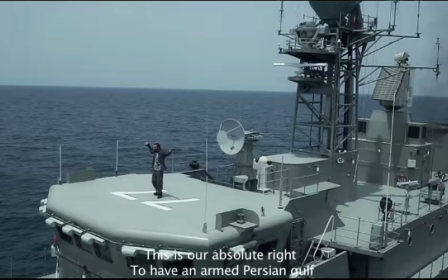Zarif defends 'balanced' Iran deal, as critics voice opposition

Iran's foreign minister defended on Tuesday what he said was a "balanced" nuclear deal with world powers, telling lawmakers there was a need to accept that the negotiations had required compromise.
In a speech to parliament, Mohammad Javad Zarif emphasised that last week's agreement would secure the lifting in coming months of UN and Western sanctions imposed on Iran over its nuclear programme.
In return, Iran has agreed to put curbs on its atomic activities for at least a decade but it will continue to enrich uranium and be allowed to pursue research and development of more modern nuclear technology.
The deal and restrictions, including a more rigorous inspection regime, aim to remove Western concerns that Iran is seeking an atomic bomb - an allegation Tehran has always denied.
Zarif, who led Iran's negotiating team, was feted in street celebrations in Tehran after the deal was announced last Tuesday, but members of the conservative-dominated parliament have proved a tougher sell.
In a sign of their scepticism, just days before the final negotiations started in Vienna, members of parliament passed a new law which they said was to defend the nuclear programme, but which the government opposed.
Some hardliners in parliament have railed against the diplomacy, arguing that too many concessions were made.
'Give and take'
But Zarif said that the long-running talks could never have satisfied Iran's or the West's every demand.
"We should not forget that any deal is a give and take and each side gives up part of its demands to realise the more important part until what has been given and received is balanced," he said.
"Iran's key objectives on which we insisted are what we gained. For the other side the key demands were to prevent Iran from reaching nuclear weapons through limitations and supervision."
Suggesting that Iran got the better side of a bargain with the West, and reiterating Tehran had never sought nuclear weapons, Zarif added: "What they gained was a vain effort to get what was already acquired.
"Our biggest achievement is the stamp by the UN Security Council confirming (uranium) enrichment in Iran."
Critic warns over Iran's red lines
On Monday the Security Council passed a resolution 15-0, which approved the deal struck in Vienna, however, a senior Iranian official has responded critically to it.
“Some of the points inserted in the draft are clearly in contradiction to the Islamic Republic of Iran’s major red lines and violate them, particularly regarding arms capabilities, and we’ll never accept it,” General Mohammad Ali Jafari, commander of Iran’s Revolutionary Guards, said in an interview with the Tasnim news agency.
He said that the resolution violates Iran’s rights in “maintaining and upgrading Iran’s defence capabilities,” in a reference to the long-term arms embargo that will remain in place for the foreseeable future under the Vienna deal.
Iran’s parliament has voted to appoint a 15-member committee to evaluate the text of the Vienna agreement. Its members are yet to be selected.
US lawmakers in Congress have 60 days to review the deal.
Although Iran's parliament has the right to reject the agreement, it is unlikely to do so as the country's Supreme Leader Ayatollah Ali Khamenei has signalled his approval of the government's negotiations.
And on Tuesday, Ali Akbar Velayati, Khamenei's foreign affairs adviser, added his personal backing.
"If there is something that hasn't been achieved, definitely they could not have done more," Velayati said of Zarif and his colleagues in the talks.
"Through all my years of experience I do not know a stronger diplomatic team."
Khamenei's warning
Although Khamenei has approved the deal, he gave a speech on Saturday that suggested Tehran and Washington will remain foes.
“Even after this deal our policy towards the arrogant US will not change,” Khamenei told supporters at a speech in a Tehran mosque, amid chants of “Death to America” and “Death to Israel”.
US Secretary of State John Kerry responded to that speech on Tuesday by saying the comments were “very disturbing”.
“I don’t know how to interpret it at this point in time, except to take it at face value, that that’s his [Khamenei’s policy],” Kerry said in an interview with the Saudi-owned Al Arabiya television channel.
“But I do know that often comments are made publicly and things can evolve that are different. If it is the policy, it’s very disturbing, it’s very troubling.”
Stay informed with MEE's newsletters
Sign up to get the latest alerts, insights and analysis, starting with Turkey Unpacked
Middle East Eye delivers independent and unrivalled coverage and analysis of the Middle East, North Africa and beyond. To learn more about republishing this content and the associated fees, please fill out this form. More about MEE can be found here.





